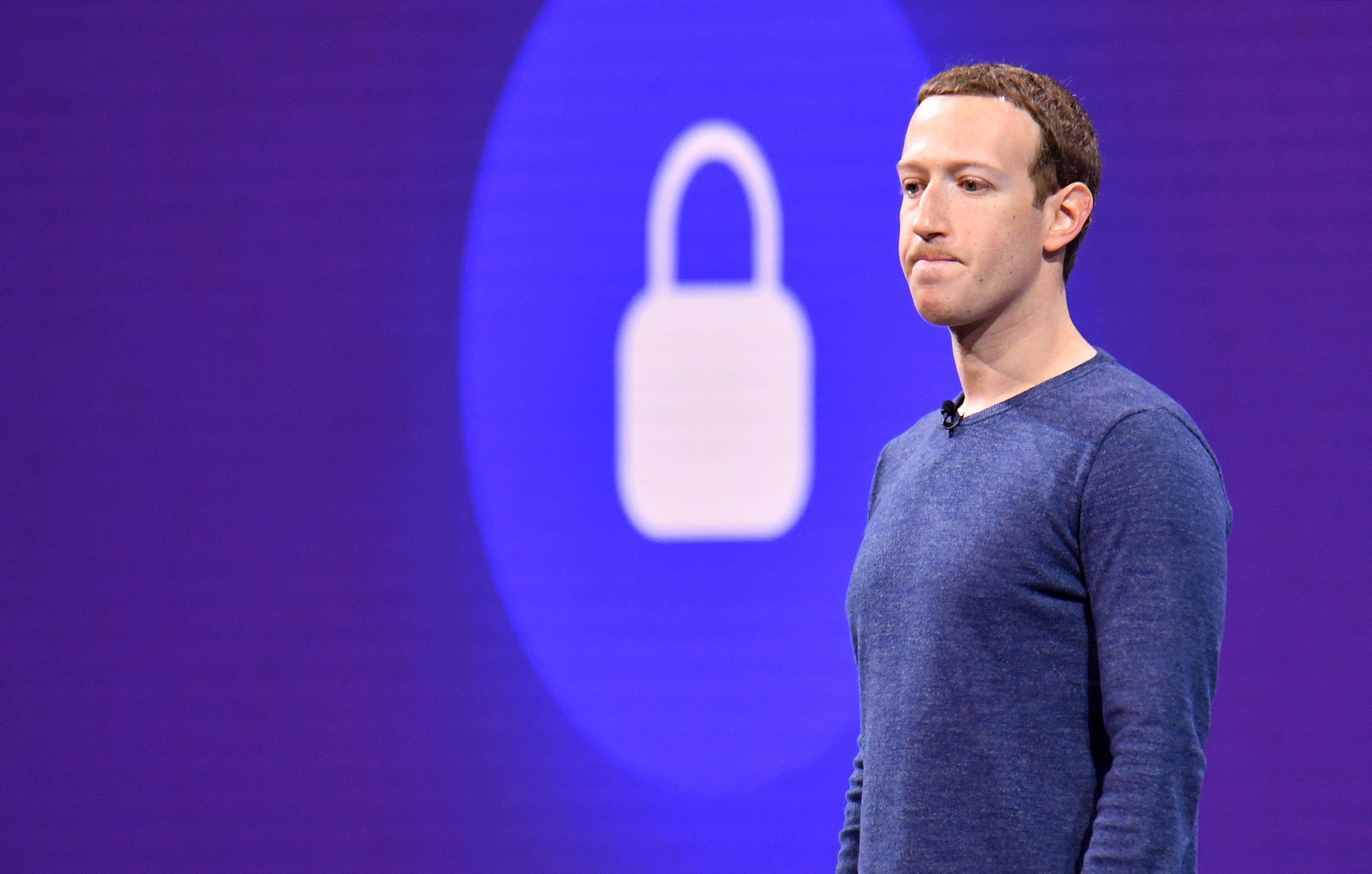How Facebook became trapped in its own bubble
Scandals have badly damaged the company's reputation, and neither politicians nor investors seem ready to forgive

A free daily email with the biggest news stories of the day – and the best features from TheWeek.com
You are now subscribed
Your newsletter sign-up was successful
The smartest insight and analysis, from all perspectives, rounded up from around the web:
Bent on rapid growth, Facebook ignored and later hid evidence that it was being used to spread misinformation, said Sheera Frenkel at The New York Times. The company has been on the defensive for two years over revelations of massive data theft and its key role in Russia's interference in the 2016 elections. Last week, a Times investigation found that through all Facebook's crises, executives concealed their missteps and fought dirty to deflect attention from their myriad problems. CEO Mark Zuckerberg and chief operating officer Sheryl Sandberg downplayed the embarrassing revelations, even "as evidence accumulated that Facebook's power could be exploited to disrupt elections, broadcast viral propaganda, and inspire deadly campaigns of hate around the globe." When Sandberg learned that her security chief had told the board that Facebook had been unable to stop a flood of Kremlin-linked accounts, she seethed that he'd opened the company up to greater scrutiny. The company also hired an opposition-research firm to discredit activist protesters. Facebook's approach has always been "to ask for forgiveness rather than permission," said Emily Stewart at Vox. Now the scandals have badly damaged the company's reputation, and neither politicians nor investors seem ready to forgive.
One theory is that Facebook's disasters were caused by its leaders' naïveté, said Shira Ovide at Bloomberg. So convinced were they that Facebook was a force for good, this theory goes, that management couldn't foresee "how the social network could be twisted and abused." We now know that's not true. The fault is squarely on Zuckerberg's and Sandberg's shoulders. They have repeatedly apologized for all that's wrong at Facebook, but they "still don't truly accept that they created a monster." With every scandal, Facebook denied or minimized the problems. The company's success made its leaders believe that they could do no wrong. What Facebook needs is "a chief criticism officer, someone to tell Zuckerberg, Sandberg, and other executives when they can't see outside of their own bubble."
The Week
Escape your echo chamber. Get the facts behind the news, plus analysis from multiple perspectives.

Sign up for The Week's Free Newsletters
From our morning news briefing to a weekly Good News Newsletter, get the best of The Week delivered directly to your inbox.
From our morning news briefing to a weekly Good News Newsletter, get the best of The Week delivered directly to your inbox.
With the most recent revelations, a campaign to regulate Facebook is "gathering momentum" in Washington, said Cecilia Kang at The New York Times. Both Democrats and Republicans are threatening to restrain Facebook with antitrust actions and investigations. "Facebook cannot be trusted to regulate itself," said one top House Democrat. All the pressures have created a "darkening mood within the social-media giant," said Deepa Seetharaman at The Wall Street Journal. After years of "remarkably stable" leadership, nearly a dozen high-profile or senior executives have announced their departures this year. Outside critics are calling for Sandberg or even Zuckerberg to resign, too. Just over half of Facebook's employees now say Facebook is "making the world a better place," a big decline from last year. Zuckerberg has been combative in defending his company. In one meeting with employees last week he blasted the latest critical coverage as "bulls--t." But the urgency of Facebook's problems is not lost on the CEO. He has pressed top staff to make faster progress on securing the platform, and earlier this year told top lieutenants that Facebook "was at war and he planned to lead the company accordingly."
A free daily email with the biggest news stories of the day – and the best features from TheWeek.com
-
 The mystery of flight MH370
The mystery of flight MH370The Explainer In 2014, the passenger plane vanished without trace. Twelve years on, a new operation is under way to find the wreckage of the doomed airliner
-
 5 royally funny cartoons about the former prince Andrew’s arrest
5 royally funny cartoons about the former prince Andrew’s arrestCartoons Artists take on falling from grace, kingly manners, and more
-
 The identical twins derailing a French murder trial
The identical twins derailing a French murder trialUnder The Radar Police are unable to tell which suspect’s DNA is on the weapon
-
 The pros and cons of noncompete agreements
The pros and cons of noncompete agreementsThe Explainer The FTC wants to ban companies from binding their employees with noncompete agreements. Who would this benefit, and who would it hurt?
-
 What experts are saying about the economy's surprise contraction
What experts are saying about the economy's surprise contractionThe Explainer The sharpest opinions on the debate from around the web
-
 The death of cities was greatly exaggerated
The death of cities was greatly exaggeratedThe Explainer Why the pandemic predictions about urban flight were wrong
-
 The housing crisis is here
The housing crisis is hereThe Explainer As the pandemic takes its toll, renters face eviction even as buyers are bidding higher
-
 How to be an ally to marginalized coworkers
How to be an ally to marginalized coworkersThe Explainer Show up for your colleagues by showing that you see them and their struggles
-
 What the stock market knows
What the stock market knowsThe Explainer Publicly traded companies are going to wallop small businesses
-
 Can the government save small businesses?
Can the government save small businesses?The Explainer Many are fighting for a fair share of the coronavirus rescue package
-
 How the oil crash could turn into a much bigger economic shock
How the oil crash could turn into a much bigger economic shockThe Explainer This could be a huge problem for the entire economy